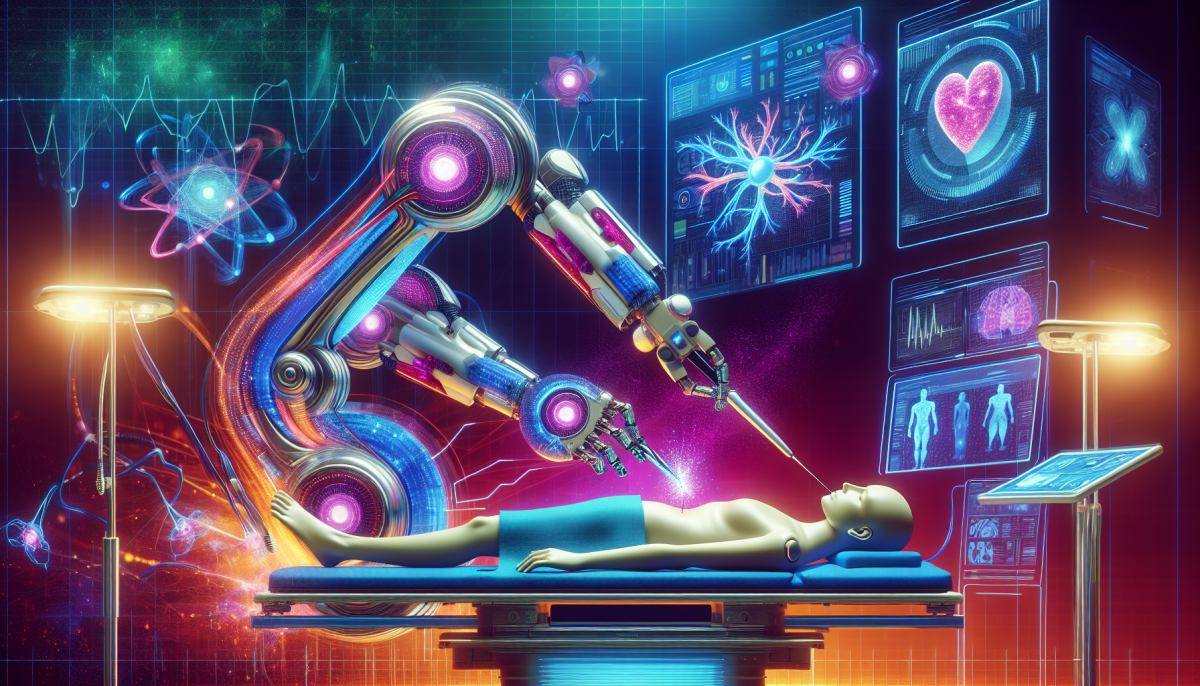AI is making waves in healthcare, and it's pretty exciting to see how it's changing things for the better. From diagnosing diseases to personalizing treatment plans, AI is becoming a trusted partner for healthcare professionals. You might wonder, how does it all work? Let’s break it down.
One of the coolest things about AI is its ability to analyze massive amounts of data quickly. Think about it: doctors have access to tons of patient information, research studies, and clinical data. With AI algorithms, this information is processed in a flash, helping doctors spot trends and make informed decisions faster than ever before. This means faster diagnoses and treatment plans tailored to each patient's unique needs.
Another area where AI shines is in predictive analytics. Imagine being able to predict health issues before they become serious! AI analyzes patterns in patient data and can identify potential health risks early. This proactive approach not only saves lives but can also lead to significant cost savings in healthcare.
AI is also streamlining administrative tasks in healthcare settings. From scheduling appointments to managing billing, these routine processes can be a real headache. AI-driven tools can automate these tasks, allowing healthcare professionals to focus more on what they do best—caring for patients. Plus, it helps reduce human error, which is always a good thing!
All in all, AI is stepping in to support healthcare in ways we never thought possible. It's transforming how we approach everything from diagnosis to treatment, making the healthcare experience smoother for both patients and providers. The future looks bright with AI in the mix!
Benefits of AI for Patients and Providers
AI is changing the game in healthcare, making life easier for both patients and providers. For patients, one of the biggest perks is the personalized care they receive. AI can analyze health data to tailor recommendations and treatment plans specifically to individual needs. This means you get a plan that fits you, not a one-size-fits-all solution.
On the provider side, AI helps reduce the burden of paperwork and repetitive tasks. Imagine doctors spending less time on administrative duties and more time with patients. AI tools can handle scheduling, billing, and even some diagnosis, which frees up valuable time for healthcare professionals to focus on what really matters – patient care.
Another fantastic benefit is improved diagnostics. AI algorithms can quickly analyze medical images and lab results with impressive accuracy. This means potential issues can be spotted earlier, leading to better outcomes. Plus, with AI continuously learning from new data, it's like having a smart assistant that gets better at spotting problems over time.
Access to healthcare is also enhanced with AI. Telehealth options powered by AI make it easier for patients to connect with providers, especially in remote areas. This opens up opportunities for more people to receive timely care without the hassles of traveling long distances.
Popular AI Tools Transforming Healthcare
Healthcare is going through a major shake-up thanks to AI tools that are making life easier for both patients and providers. From diagnosis to treatment plans, these tools are stepping in to bridge gaps and improve accuracy. Here are some popular AI tools that are truly transforming the healthcare landscape.
1. IBM Watson Health: This powerful tool analyzes vast amounts of medical data to help doctors make better decisions. It can suggest treatment options and predict patient outcomes based on existing cases. With Watson, healthcare providers can work smarter, not harder, which is a win for everyone!
2. Buoy Health: Picture this: you have a health question and don’t know where to turn. Buoy Health acts like a personal health guide. It uses AI to assess symptoms and provide tailored health advice, making it easier for patients to understand their options before reaching out to a healthcare provider.
3. Zebra Medical Vision: Imagine being able to detect diseases like cancer or cardiovascular conditions by simply analyzing medical imaging. That’s what Zebra Medical Vision does. Their AI tools can identify potential health issues early on, giving patients a better shot at treatment and recovery.
These tools are just the tip of the iceberg when it comes to AI in healthcare. By streamlining processes and enhancing patient experiences, they’re helping to create a system that’s not only smarter but also more compassionate. This is the direction healthcare needs to keep moving toward!
The Future of AI in Medicine
One of the biggest breakthroughs we've already seen is the use of AI in analyzing medical images. Tools powered by AI can quickly scan X-rays, MRIs, and CT scans, often spotting issues that human eyes might miss. This means earlier detection of conditions like cancer, which can be crucial for better outcomes. Plus, it frees up doctors to spend more time with their patients instead of staring at scans.
Another way AI is changing medicine is through predictive analytics. By analyzing vast amounts of patient data, AI can identify trends and foresee potential health issues before they become serious. This proactive approach allows healthcare providers to intervene sooner, improving patient outcomes and possibly saving lives.
Let's not overlook how AI is helping with personalized medicine. With insights gleaned from genetic testing and data analysis, treatments can be tailored to fit each individual's specific needs. This means less guesswork and a higher chance of success in treatment plans, something every patient would appreciate.



